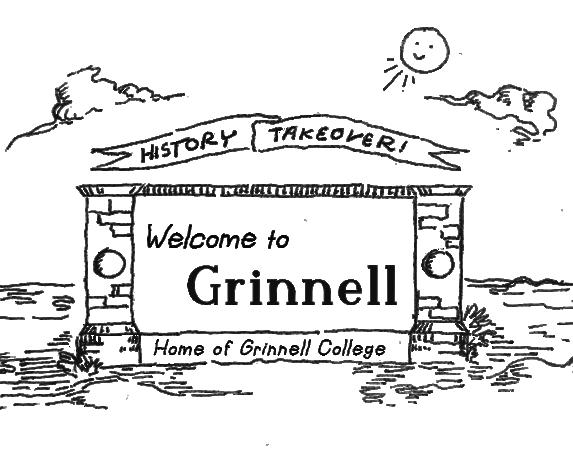
5 minute read
Faculty struggles to plan around Working Differently Day
Gregg-Jolly all said that more extensive surveying should be done to find a system that proves effective for everyone.
Many students feel that the most meaningful reform would be to use the extra days to create a three-day weekend. “Using Mondays and Fridays as Working Differently Days would be much better,” said Guanzheng Sun `25. “Putting them with weekends would create opportunities for traveling to see friends and family, or simply catching up on sleep and work.” my own questions with me.”
Advertisement
These changes have also shifted the MAP application process and how faculty members recruit potential mentees. The science division recruits MAP applicants through a division-wide application process, where students can access summaries of existing research opportunities across the division and formally apply for a MAP. This system has also proven necessary for professors in other divisions, which has made the availability of MAPs more competitive for students.
Karla Erikson Professor of Sociology
“The only problem is that it’s uncompensated, so it’s mainly over-
By Taylor Nunley nunleyta@grinnell.edu
time,” Erickson said. “I can’t just do it out of the generosity of mine and then still find time to do my scholarship, so for me, my maps have to advance my own scholarship.”
Differences in access to funding resources can also present disparities in student opportunities. MAPs focusing on the social studies division and independent majors constituted 9 overall approved MAPs this semester, while 19 applications were geared toward the sciences.
MAPs in the STEM fields can currently access external grants funded by alumni donations, which allows the program’s operating budget to fund more MAPs outside of the program’’ operating budget. These grants, like the Cech Scholars program, are exclusively donated to support faculty-mentored summer research opportunities for specific groups like BIPOC students and first-generation students.
“It’s really uneven in any given year,” Erickson said. “Our most highly qualified social majors may not do a map just because it doesn’t line up or their professors are already pursuing something that didn’t interest them.”
“As opposed to just waiting for a MAP to appear, go for it.” Polyak said. “You have to create the opportunities that you want.”
UGSDW Bargaining would consider a gradation based on hours worked. want is for them to be so disruptive that people feel that they’re not useful.”
At the collective bargaining session on March 2, the Union of Grinnell Student Dining Workers (UGSDW) bargaining team and the College’s bargaining team negotiated a new proposal concerning leaves of absence and revisited issues surrounding health and safety in the workplace.
During the meeting, the UGSDW bargaining team expressed concerns over the current process of progressive discipline for student workers before being terminated. “Let’s give them [the student workers] a chance to respond … before that action is taken,” said Isaiah Gutman `23, a member of the UGSDW bargaining team.
Both teams also discussed the right to have a union representative or steward at this disciplinary meeting, to which the College’s bargaining team took no issue. The College proposed including language saying, “Workers have the right to not have a union representative present.” UGSDW said they would have a response to this clause at the next meeting.
The UGSDW bargaining team also reiterated their concern over the Just Cause process; they said they would speak more fully on this in another session.
The College also brought up problems with not needing to provide documentation for leaves such as paid time off and bereavement leave.
The respective bargaining teams also referenced a section in the new UGSDW proposal which outlines leave for municipal obligations, specifically elections. The College said UGSDW’s current language implies that all workers can take a paid day off to vote; the UGSDW bargaining team disagreed and said this would only be necessary if a scheduled shift interfered.
Sherif Abdelkarim, professor of English, said that he has appreciated having Working Differently Days to grade, host guest lectures and invite students to do field work, but he currently sees greater benefit in allowing faculty to determine when and how to implement these days.
“The idea of a faculty member having the choice to ‘work differently’ according to the dates that work best for their particular class is a great idea. Frankly, I don’t see any disadvantages to that model,” said Abdelkarim. However, when it comes to the current structure, Abdelkarim said that having set dates can get complicated.
Other faculty members have voiced similar concerns. Leslie Gregg-Jolly, professor of biology, said that she is ambivalent about Working Differently Days. “These days are a pain in the neck to plan curricularly.
We put so much time into planning the semester and making sure that students aren’t overwhelmed,” she said. “And then to just eliminate two days of class is a big deal.”
Gregg-Jolly said that the College should look at workload more broadly.
“If we limit work, students may possibly be less stressed, but then they also may not become the superstar alumni we’ve been able to foster,” she said, pointing to the frequent cancellation of science labs on weeks with Working Differently Days. “So at what point is there a trade off if we diminish the academic program?”
Arner said that while the majority of the feedback has been positive, the primary concern is that these days simply relocate work rather than eliminate it. Considering the mixed reviews across campus, Arner, Abdelkarim and
Sira Nassoko `24 also said that the days could be placed more effectively. Since they are placed mid-week, Nassoko has found that they essentially become reading days. “It’s a nice break from classes, but I don’t find that my day is any less busy.” Furthermore, Nassoko said that professors often still assign work. “I’ve had due dates on some Working Differently Days, and I know some friends have also had work either assigned or due on these days,” Nassoko said.
“It’s hard to gauge in the moment how effective these Working Differently Days are,” said Arner. “Ideally, we will look back in May and determine whether they made a difference.”
The second Working Differently Day is scheduled for Wednesday, April 26. The Grinnell College Committee on Academic Standing is also planning two Working Differently Days each semester in the 2023-24 academic calendar.
UGSDW’s new proposal on leaves of absence yielded several concerns for the College. Similar to their healthcare rebate proposed at last week’s session, the College said the current benefits outlined in UGSDW’s proposal far exceed what non-student workers receive. Currently, UGSDW’s proposal allots 8 hours of paid time off to all student workers for any reason.
The College debated the phrase “any reason” and the possibility of students who work little hours being able to take off 8 hours. UGSDW said they
The last section concerned health and safety. UGSDW brought forth issues with reporting COVID-19 in workplaces; the College said that reporting each case could violate privacy issues in small groups. Anonymous notifications were suggested as a counter. Finally, both teams negotiated workplace protections for disabled workers. The College agreed there is a need to put certain requirements — like how long a worker will be standing or weight lifted — in job descriptions. But they also stressed that students understand the requirements of different on-campus jobs and said many positions already have accommodations in place. The UGSDW bargaining team said the need for these protections in the contract is for students to understand they could utilize them.
Bargaining will continue on Thursday, March 9 at 4:15 p.m.
Correction from last week’s bargaining article: The College bargaining team’s proposed change to a base wage of $10.75 would actually only affect Level I jobs, not all jobs on campus. Only 10% of student workers would be paid at Level I wages according to the College’s proposed pay tier system.










